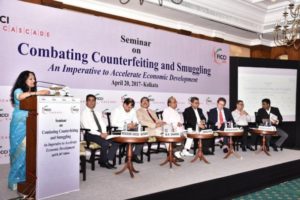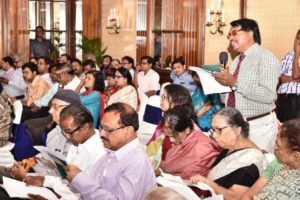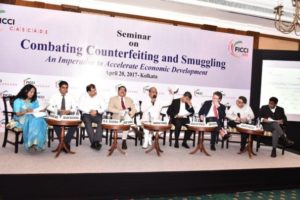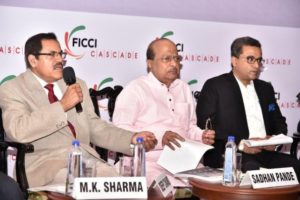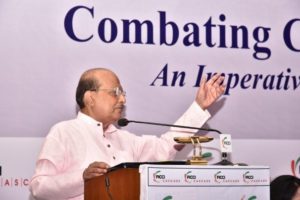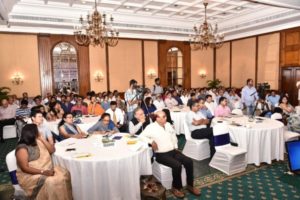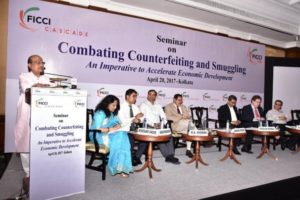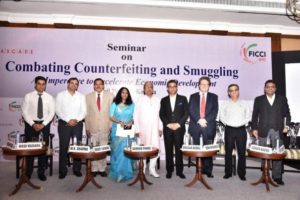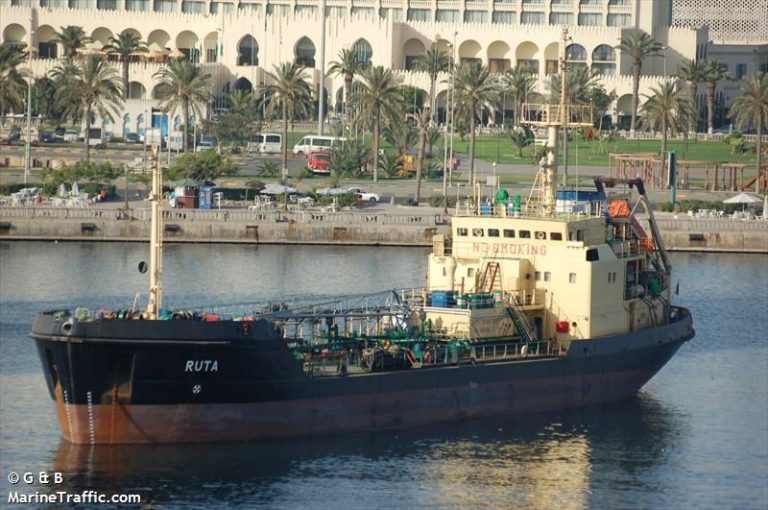
Coast guard arrests two tankers on suspicion of fuel smuggling
The Libyan coastguard has arrested two tankers suspected of smuggling petroleum products following a gun battle which erupted when the vessels refused coastguard orders to stop and be boarded.
“The clashes lasted for three hours, but the two tankers were successfully seized,” said to Qassem Ayoub Qasim, the Libya navy spokesman.
The tankers were seized yesterday off Zuwara, 120 kilometers west of Tripoli. No one is said to have been hurt in the shooting.
According to Qasim, one of the tankers is the Ukrainian-flagged Ruta while the other, the Stark, is from an African country. He did not name the country, however an oil tanker of the same name is registered in the Democratic Republic of Congo. According to MarineTraffic.com, both tankers had sailed from Turkey and were heading to Malta.
Lear MoreSmuggled cigarettes worth €50,000 seized by National Police
OFFICERS from the National Police stopped four cars in La Linea de la Concepcion and discovered 26,600 packs of smuggled cigarettes.
The officers were convinced that there was something underhanded going on when they saw the four vehicles leaving La Linea and heading towards San Roque in what appeared to be a convoy and all of the drivers were using mobile phones.
When all four cars were stopped and searched, the cigarettes which had no customs seals and are valued at €50,000 were discovered.
All four who were arrested were Moroccans living in Spain and are believed to be part of a group involved in tobacco smuggling.
Lear More
More than 13,000 illegal cigarettes seized in raids on Norwich shops
A total of 13,500 illegal cigarettes and 250g of illegal hand-rolling tobacco were confiscated from four of six stores which were swooped on.
The raids, part of a crackdown on suppliers of illegal tobacco, were led by trading standards officers who were accompanied by members of Norfolk Constabulary’s licensing, drug and alcohol team, Norwich City Council officers and Stuart Phillips of B.W.Y Canine Ltd with tobacco detection dogs Scamp and Yoyo.
The shops were all targeted as a result of intelligence received from members of the public, businesses and Norfolk Constabulary.
Lear MoreSeminar on ‘Combating Counterfeiting and Smuggling – An Imperative to Accelerate Economic Development’, Kolkata
20/4/2017 | The Oberoi Grand, Kolkata
Illicit networks are infiltrating and undermining licit markets, jeopardizing public health and safety, discouraging research and development, and eroding government revenues, thus hurting the economic development of the country.
FICCI CASCADE with a view to engage all relevant stakeholders, including government representatives, enforcement agencies, consumer activists, the media, industry, legal experts, and to sensitize them to fight against counterfeiting and smuggling, organized a seminar in Kolkata on “Combating Counterfeiting and Smuggling– An Imperative to Accelerate Economic Development” on 20 April, 2017. The seminar brought experts in this field on a common platform to raise the concern over the growing illicit trade and to create large-scale awareness among the impacted segments of the society.
Shri Sadhan Pande, Minister-in-Charge, Consumer Affairs Department, Government of West Bengal, was the chief guest at the seminar. He stated that illicit trade was an increasingly growing global concern and could not be neglected. Hon’ble Minister added that such activities threaten India’s legal industry, adds social cost to consumers and cause huge loss to the exchequer. Emphasizing on the need of making the society aware on this subject, he highlighted that in India, the situation was being further aggravated with counterfeit and smuggled products getting into the country through our borders. Lauding the CASCADE campaign against illicit trade practices, the minister invited FICCI for joint publicity campaigns with Consumer Affairs Ministry on TV and Radio to increase awareness on the threats posed by counterfeiting and smuggling.
Mr. Deep Chand, Advisor, FICCI CASCADE and Retd. Special Commissioner, Delhi Police outlined the impact of counterfeiting & smuggling while assessing the gravity of the problem. “8-15% of global GDP is impacted due to Illicit trade and criminal activities. It is time that we, as a national and as a part of the global economy, call for stern and resolute counterstrike force against such ill-intentioned activities. Smuggling of drugs, luxury goods, cigarettes are a major source of funding the extremist groups. Thus, steps such as greater vigil at the borders, bilateral and multilateral engagements between nations, punitive action coupled with the right policy framework that dis-incentivizes this entire activity and consumer awareness campaigns which highlights the detrimental impact of illicit products are much needed to combat this menace”, said Mr. Chand in his address.
The seminar also held a panel discussion on ‘countering the menace of counterfeiting and smuggling- resolutions and possible solutions’, where experts from various fields discussed about the issue at hand.
Mr. Gaurav Vutts, Regional Legal Manager, Hindustan Unilever Ltd. said that we need to find the best measures to be adopted to counter the challenges of the growing flow of illegal trade. He emphasized on the need for effective collaboration and cooperation among stakeholders to curb counterfeiting and smuggling. Mr. Siddharth Wanchoo, Executive Vice President, Marketing, ITC Ltd. highlighted the problems faced by cigarette manufacturers, especially when the products are manufactured outside the country and smuggled into our country, tax arbitrage & counterfeiting.
He also emphasized on the loss of revenue to the legal industry and government due to this illegal trade. Mr. Robin Mackenzie, Global Marketing Director, De La Rue emphasized on the need for innovation in overt & covert features, track & trace capabilities of the products along with increased education and legislation to counter illegal trade. Mr. Debanjan Mandal, Partner, Fox & Mandal spoke on the challenges faced to counter illicit trade such as inadequate manpower, leakage of information, corruption, slow prosecution and IPR crimes not given adequate importance etc.
The seminar also marked the enthusiastic and encouraging support of enforcement officers. Mr. Akash Magharia, IPS, Superintendent of Police (Operations), CID, West Bengal, sharing his experiences, explained how the police department recently solved few dealings of counterfeit cement, edible oil, milk etc. in West Bengal. He also stated that porous borders increased the challenge of the Police Department especially in West Bengal as smuggled cigarettes, alcohol, and many other products flooded the market easily. “Right holders must register with customs authorities for better enforcement” observed Mr. M. K Sharma, Deputy Commissioner of Customs (Port), Kolkata.
He further underscored on the need of addressing the issue of dumping cheap & poor quality products and sought support of stakeholders in finding strategies to curb this hazard. Mr. Sharma in his address said that trucks headed to Nepal from Kolkata port will soon have RFID tags to prevent tampering and theft by diverting vehicles midway. Both the enforcement officials underlined the need for consumer support to curb the problem of counterfeiting and smuggling and their active involvement towards the cause, and stressed on their registration of complaints with the police and custom departments.
Over 115 delegates attended the programme and the seminar saw vigorous interaction with delegates demonstrating an active interest in the issue. Hon’ble Minister along with the esteemed dignitaries affirmed support and active engagement to counter counterfeiting and smuggling as it needs constant strict and urgent actions.
Ms. Mousumi Ghose, Assistant Secretary General & Head, FICCI West Bengal State Council proposed the vote of thanks. Ms. Ghose concluded the seminar by stating that the problem of counterfeiting and smuggling was multifaceted and complex and needed to be discussed time and again, with government, to emphasize on effective and adequate laws and enforcement; increasing engagement with the industry and most importantly creating awareness in the society to curb illicit trade.
Lear MoreLife has come to standstill in India’s counterfeit capital
KOLKATA: While people in the rest of the country are queuing up outside banks for cash, there is an eerie calm in Kaliachak in Madla district. Following the demonetisation of Rs 500 and Rs 1,000 notes, life has virtually come to standstill in India’s counterfeit capital.
Figures reveal how large is the fake Indian Currency Notes (FICN) business in the area. This year, district police seized Rs 1.14 crore in fake currency. In the last two years, 180 cases of FICN have been lodged at the local police station and 240 people, mainly couriers, arrested.
Apart from West Bengal Police, national agencies too are investigating the FICN cases. The Border Security Force has seized FICN of Rs 1.35 crore in last 10 months while Rs 2.5 crore in FICN was seized in 2015.
Apart from the CBI and the NIA, the Enforcement Directorate is investigating 44 cases of FICN in which money was laundered to foreign countries to fund terror activities in India.
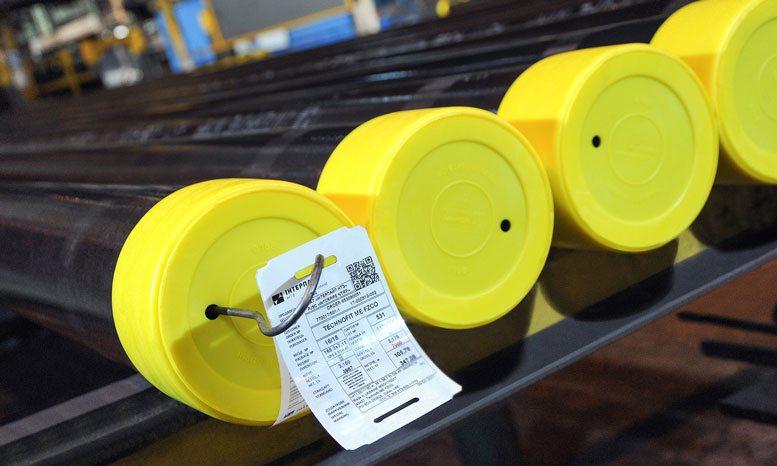
Interpipe launches service to defend against counterfeiting
Ukraine-based Interpipe has stepped up its offensive against counterfeiting, with the launch of an online service that can verify the authenticity of its products onsite.
The steel pipe producer says that its pipe labels are now imprinted with a QR code, which contains encrypted details that are unique to the customer’s specific order. If customers want to verify the authenticity of products, they just have to use their smartphones to scan the QR codes, which are linked to Interpipe’s shipped orders database.
If products are found to be genuine, the consignee will be redirected to a webpage, which will share details about the volume of products, the inspection certificate, date of shipment and heat number. In cases where products may be counterfeit, the customer will be notified and provided with the contact details for the regional sales office to verify the supply.
Andrey Burtsev, Commercial Director for Middle East, Africa and Asia markets, Interpipe said, “The Steel Alliance Against Counterfeiting (SAAC) employs a multifold approach against counterfeiters. As a key member of the alliance, Interpipe implements additional identification features on products to secure their origin. QR-codes on these pipe bundles will be a very effective first step to mitigate counterfeiting. This easy-to-use and technically advanced tool allows our customers to verify the origin of the bundle in just one click.”
Lear More
Liberia: ‘Counterfeit Medicines Cause More Deaths’.
President Ellen Johnson-Sirleaf, Chairperson of the Authority of Head of States and Government of the Economic Community of West Africa States (ECOWAS), has said that counterfeit drugs continue to pose a serious risk to public health in the sub-region.
The President said the proliferation of these sub-standard medicines, which are falsely labeled, is a major cause of mortality and the loss of public confidence in medicines and in health structures.
She said despite the close cooperation among drug companies, governments and international organizations on trade, health, customs and excise on counterfeiting, the prevalence of counterfeit drugs appears to be rising.
The President made the statement on Monday, April 10, at a resort in Monrovia during the official opening of the meeting of the Joint Committee on Health and Social Welfare, Trade, Customs, and the free movement of the ECOWAS Parliament.
http://allafrica.com/stories/201704110669.html
Lear More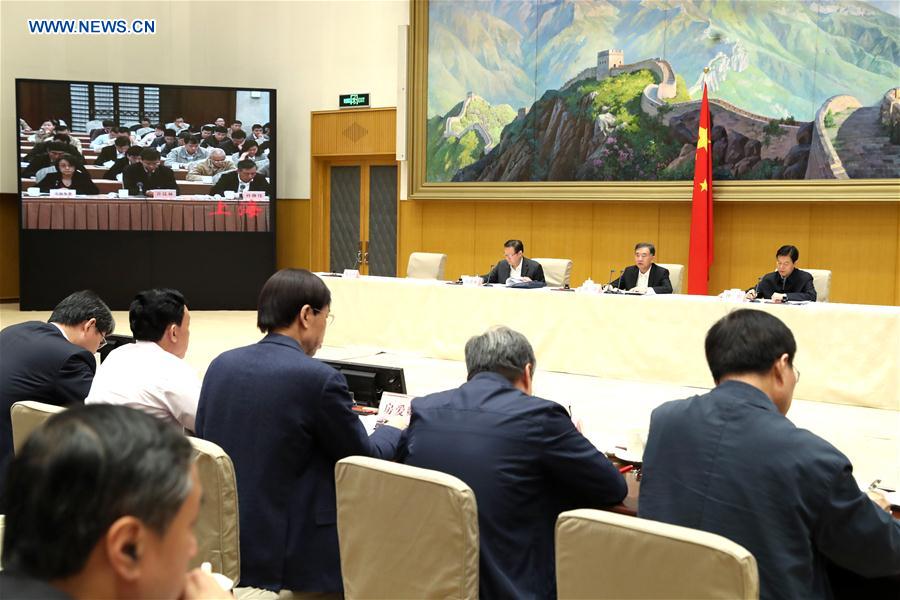
About 18,000 convicted for IP piracy, counterfeiting in China.
BEIJING, April 11 (Xinhua) — Around 18,000 people were convicted on charges of intellectual property (IP) piracy and producing counterfeit products last year, said Vice Premier Wang Yang Tuesday.
Police investigated more than 200,000 cases involving IP piracy and counterfeiting last year and seized 22,000 suspects, said Wang at a national meeting on IP piracy and counterfeit control.
Authorities closed more than 200,000 accounts that were facilitating IP piracy and counterfeiting on the Internet, and handled about 2,000 websites to guarantee the market’s proper operation, he said.
Laying out the essential tasks for this year, Wang said the government planned to tighten online supervision and investigate the source of production.
A special operation to prevent the trade of counterfeit products will be launched, in which cross-border trade along the Belt and Road will be under tight scrutiny, he said.
Supervision of rural markets will be enhanced, and computer software will be another priority, said Wang.
http://news.xinhuanet.com/english/2017-04/11/c_136200640.htm
Lear MoreASPA seeks mandatory authentication, anti-counterfeiting laws
With counterfeiting activities growing at the rate of 44 per cent, authentication solution providers on Tuesday sought government intervention to make authentication “mandatory” and enact “specific anti-counterfeiting laws” in the country.
“Counterfeiting is increasing 3 per cent per annum globally. In India, the problem is more severe, it is growing with an alarming rate of almost 44 per cent per year,” Authentication Solution Providers’ Association (ASPA) General Secretary Arun Agarwal said here.
“No specific anti-counterfeiting laws are in place in the country and using of authentication solution has not been made mandatory,” said International Hologram Manufacturers Association’s Chairman Manoj Kochar.
The officials of the associations said several countries all over the world introduced laws to tackle the menace of counterfeiting. For example, Canada passed Combating Counterfeit Products Act.
“The Indian government also ought to do something similar,” Agarwal told reporters here at the association’s ‘Make Sure India’ campaign.
Lear More

Crackdown on counterfeiting.
From fake versions of the drugs Viagra and Xanax to phony designer watches and handbags, counterfeiting is rising fast and is increasingly becoming a booming underground economy. And while counterfeiters reap significant profits, millions of consumers are at risk from unsafe and ineffective products.
Who hasn’t been tempted to purchase a fake designer handbag or watchâ��? They are a fraction of the cost of authentic designer products, ranging from the hundreds to the ten-thousands depending on the designer, the style and the materials used. But there are many reasons not to buy knock-offs, first and foremost because fakes harm people and hurt the economy.
Despite being against the law, counterfeiting is big business. Counterfeit products exist in virtually every area – food, drinks, clothes, shoes, pharmaceuticals, electronics, auto parts, toys, currency, tickets for transport systems and concerts, alcohol, cigarettes, toiletries, building materials and much, much more.
https://www.iso.org/news/2014/01/Ref1809.html
Lear More



